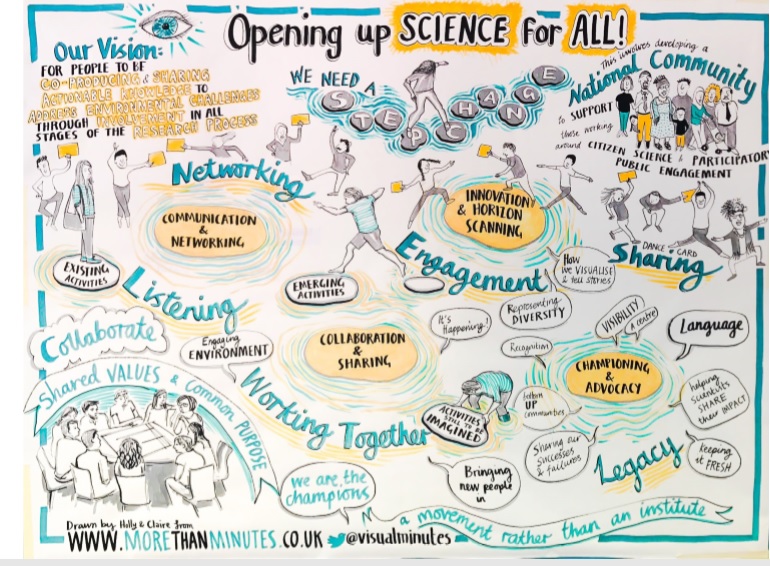From enthusiastic ‘twitchers’ recording rare bird sightings to amateur astronomers seeking unseen stars and constellations, countless citizen science communities exist across the UK. Dr Geoghegan’s research is combining these approaches with new ways of working and partnerships to create a nationwide community that puts citizens at the centre of science.
When volunteers collaborate with scientists, the resulting mix creates the skills and know-how to ask and answer big scientific questions. But the benefits to the research community are often under-played. Having citizen scientists on the team can boost the breadth and quality of data and provide more in-depth and relevant answers to research questions.
Associate Professor of Human Geography Hilary Geoghegan and her team are fascinated by what motivates people to get involved in research and have created a community to inspire citizen science and public engagement with environmental research at a national scale.
Bringing together community groups, policymakers and cultural and environmental partners, the OPENER initiative uncovers and targets the challenges that face volunteers and scientists involved in citizen science projects, including expectations, time pressures, funding and gaining institutional support. Training sessions and ‘communities of practice’ help researchers develop the knowledge, understanding and tools they need to build inclusive projects which appeal to the public and ask questions that are relevant to society.
With a second wave of funding from the Natural Environmental Research Council, the team will now work with a host of partners across the UK to combine community organising, listening and storytelling to connect researchers and diverse communities and empower them to take collective action on important environmental issues.
Funders: Natural Environment Research Council (NERC)
Judges’ comment: “This is a thoroughly planned and executed programme of work to engage a diverse range of relevant stakeholders.”
Shortlisted for the University Research Engagement and Impact Awards 2019
First published: June 2019

